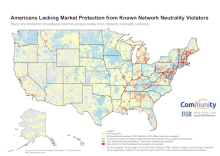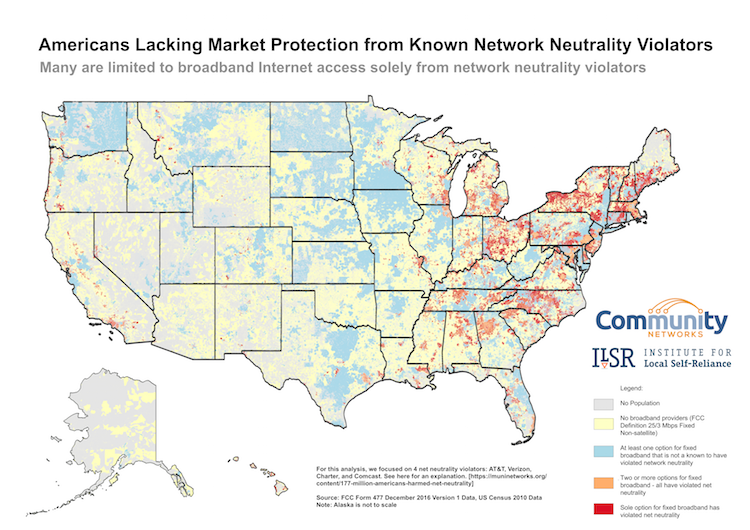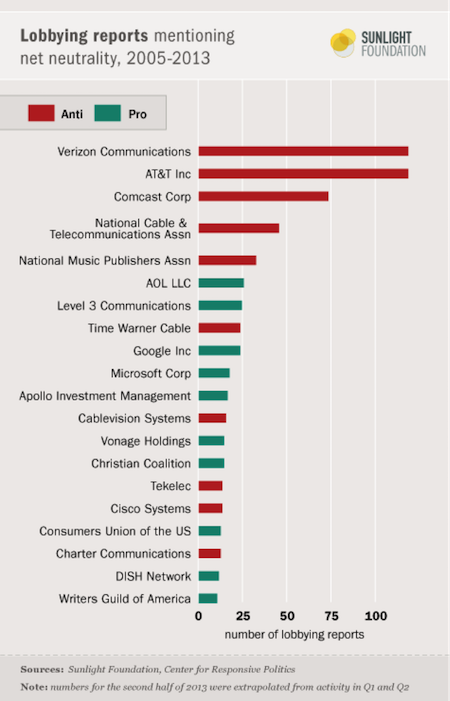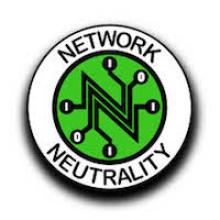Christopher On Marketplace: Munis And Network Neutrality
As the FCC’s vote on whether or not to remove network neutrality draws near, an increasing number of people are beginning to wonder how Internet access will change for them. Journalists have reached out to us to ask about the role of publicly owned Internet networks and the future without federal network neutrality policy protections. Molly Wood from Marketplace Tech interviewed Christopher to ask about the pros and cons of munis, how the FCC vote could affect municipal networks, and how municipal networks may help when or if we face an Internet no longer protected by network neutrality.
Wood asked some general questions about munis and their cost, and Christopher offered some specific examples from information we’ve learned from the communities we study. Now that big ISPs are set to receive the keys to the kingdom, local leaders wonder if they can take steps to avoid the pitfalls of unfettered power.
Christopher told Molly:
The only way that [ending network neutrality] would help cities and people more generally is that it would lead to more cities considering this and cities being more aggressive because the big cable and telephone companies would likely abuse their new power. But the Internet will still be there behind the scenes and cities can build their own apps and get around the barriers that the big cable and telephone companies are producing.
Listen here or at the Marketplace website.









 We also obtained permission to
We also obtained permission to 

